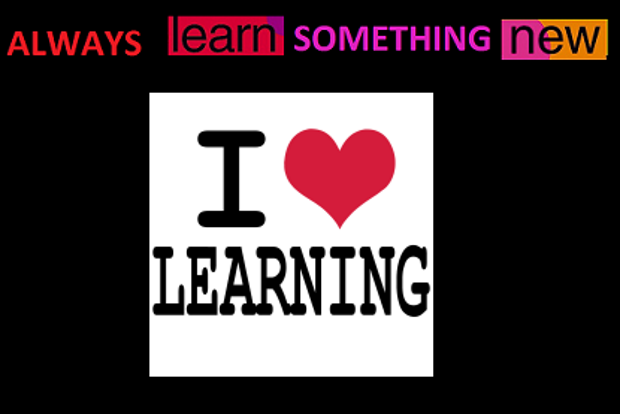THE BEST WAY(S) TO LEARN

‘Learn something new every day’ is an old saying. When a new topic comes up, are you all ears? Do you want to see the latest information about it? Are you eager to get your hands on it? Or do you look forward to talking it through? If you use phrases like these, you may have a preferred learning style.
Do you know your learning style? Knowing how your brain processes new information can be the difference between struggling to learn and making it look easy.
Figuring out how your brain processes new information can be the difference between struggling to learn and making it look easy
Four Learning Styles
Learning is an aspect of personal growth and career development that lasts your whole life. Difficult work projects require new skills; a new hobby can teach you a whole new way to look at the world.
After years of learning and helping other people learn, I define 4 basic styles of learning. I can usually tell a person’s learning style by their words. Which is most natural for you?
- Learning by Listening: You like lectures, or someone telling you about a new idea. You remember spoken words clearly; sometimes you can even hear them again in your head. Reading is a chore that quickly puts you to sleep. You use phrases like ‘tell me more’ and ‘I’d like to hear about that.’
- Learning by Reading: Unlike your listening sister, you can’t stand hearing someone drone on. Give you a written explanation and you quickly start absorbing. Words and concepts flow easily from the page to your memory. You say that you’d like to ‘read into’ a new topic, or ‘look at it in more detail.’
- Learning by Talking: Listening and reading are too passive. You want to ask questions about the new idea and explain it in different ways until you understand it. Speaking clarifies the concepts. Your expressions of interest are ‘let’s talk about that’ or ‘I’d love to discuss it with you.’ You’ll settle for talking to your dog if she’s the only one available!
- Learning by Doing: Forget reports, lectures, and endless conversations. You want to jump in and try it yourself as soon as possible. You might make some mistakes, but you learn quickly. Do something once and the knowledge is firmly planted in your brain. You use phrases like ‘rolling up your sleeves’ or ‘jumping in.’
All of the learning styles are equally valid; use your dominant style

Honor Your Learning Style
All of these learning styles are equally valid. You might even have a mix! My friend Karin is a mix of talker and doer; she’ll tell me a few times about something she plans to try, then go do it. I’m more of a doer, myself. Sure, I make a few embarrassing mistakes, but never the same one twice! It doesn’t matter which kind of learner you are. Just recognize it, and use the knowledge to your advantage. Listen, look, or talk about the comments you usually make, find your dominant learning style and watch your knowledge grow.
Learning More About Learning
Want to learn more about learning? There are websites, books, podcasts and videos galore. I recommend Barbara Oakley’s great MOOC on Coursera – I took it and was amazed at how much useful, practical information I learned about learning. And it’s free. (I have no affiliation -I’m just a satisfied and enlightened student). You’ll be learning your whole life. Make it easy on yourself.
.
Image credits.



